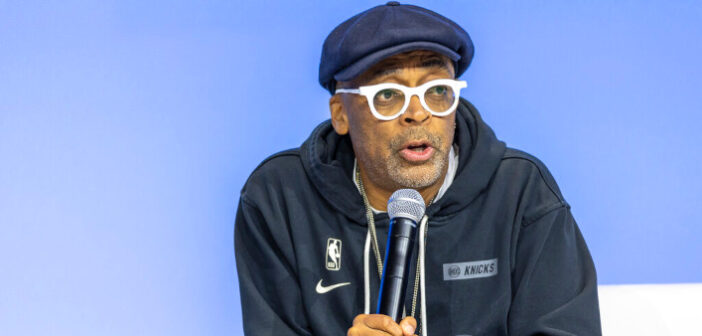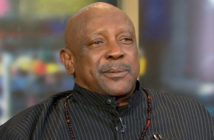Renowned American cinema director and producer, Spike Lee, has directed and produced more than 35 motion pictures. The actor, writer, and college professor made his feature film directing debut with “She’s Gotta Have It” in 1986.
Born Shelton Jackson Lee in Atlanta, Georgia, Lee has since produced films such as 1989’s “Do the Right Thing”, 1991’s “Jungle Fever“, and 1992’s “Malcolm X”.
His upbringing affected his decision to pursue filmmaking. William, his father, was a composer and jazz performer. Lee attended Morehouse College, a historically black university in Atlanta, as well as John Dewey High School in Brooklyn. “Last Hustle in Brooklyn” was the first student film he created while a college student.
He proceeded to New York University after earning a B.A. in mass communications, where he eventually earned a Master of Fine Arts in 1978. His first student film was “Last Hustle in Brooklyn,” but the first student film to be screened at Lincoln Center’s New Directors/New Films Festival was his independent feature “Joe’s Bed-Stuy Barbershop: We Cut Heads.”
In 1985, he began his active cinema career when he completed a $175,000 feature in less than two weeks. Nonetheless, the film brought in over $7 million at the box office in the United States.
Due to his popularity in the movie business, he has gained the respect of many people, and they are eager to hear him speak. At the LinkedIn Talent Connect Summit in New York, he recently had a fireside talk with Leah Smart, editor of LinkedIn News, host of the Everyday Better podcast and Teuila Hanson, LinkedIn’s chief people officer.
Speaking about his own path to achievement, Lee said that nobody ever achieves success quickly, regardless of their identity. The sooner you internalise that, in his opinion, the better.
“One of the worst lies that’s been told to young people is that there’s a thing called ‘overnight success.’ That’s done a lot of damage to people,” Lee, 66, said. “It’s not like you’re just out there, and the hand of God is going to come down from the heavens and say, ‘You are the next one.’ That is BS.”
He also emphasised that, despite appearances, success is typically preceded by a great deal of work. Additionally, he stated that you most likely won’t succeed if you wait for the ideal opportunity and do nothing to ready yourself or hasten its arrival, according to CNBC Make It.
Emphasising his personal path and obstacles, he mentioned that upon graduating from Morehouse College in 1979, his goal was to attend film school. “But that whole thing of … moving out to LA and working your way up from the mailroom, that don’t work for Black people,” he said.
Both the American Film Institute and the University of Southern California’s film schools turned him down. But according to him, his acceptance to New York University was determined more by the calibre of his work than by his performance on standardised exams like the GRE.
He further noted at the LinkedIn summit that “There are going to be times where you want to cry and you want to quit. You can’t quit. You’ve got to keep going!”
Here are some of the highlights from the fireside talk:
Follow your curiosity
“I didn’t choose film, it chose me. Growing up in Brooklyn, I had no idea that I was going to be a filmmaker. At one point, I wanted to play second base for the New York Mets, but genetics got in the way. One day I was visiting a friend of mine who was studying to be a doctor. She had a box in her apartment, and I said, “What’s in the box?” She said it was a Super 8 camera. Her father gave it to her but she had no use for it, so she let me have it.”
“That was the summer of 1977, the summer of the blackout. New York was just crazy. I filmed all the stuff happening in the city, came back to school and declared my major: mass communication. And from then on I said, this is my mission. I want to do film.”
Don’t let anyone kill your dreams
“I grew up in an artistic household. My parents never told me and my siblings that you couldn’t do something. And parents kill more dreams than anyone! When parents get that lightning bolt from their children that they want to be a painter, artist, poet, actor, musician, they don’t know what to do. They want their kids to be successful but if they choose another path and you tell them that they can’t make money, you’re killing their dreams. Don’t be the one to do that.”
Do what you love and you’ll never have to work
“I know people I went to school with who are successful but they’re not happy. When they get up to go to work every day they’ve got to press that snooze button 10 times. So, if you’re in a position to do something that you love and can make money to support your family, keep a roof overhead, food on the table, then you’ve won.”
Overnight success is a myth
“One of the worst lies that’s been told to young people is that there’s a thing called overnight success. That’s done a lot of damage to people. It’s not like you’re just out there and the hand of God is going to come down from the heavens and say, ‘You are the next one.’ That is BS. You’ve got to make sacrifices to get where you want to be. You might have to wait tables or drive a cab. It’s not going to happen overnight. There are going to be times where you want to cry and you want to quit. You can’t quit. You’ve got to keep going!”
How to get the best performance out of your talent
“You have to know people’s weaknesses and their strengths. Not everyone is Denzel Washington. A lot of times I’m auditioning someone I’ve never worked with. I want to get a vibe. I want them to know I’m not a dictator. It comes down to trust. I have to trust the actors and they have to trust me.”




